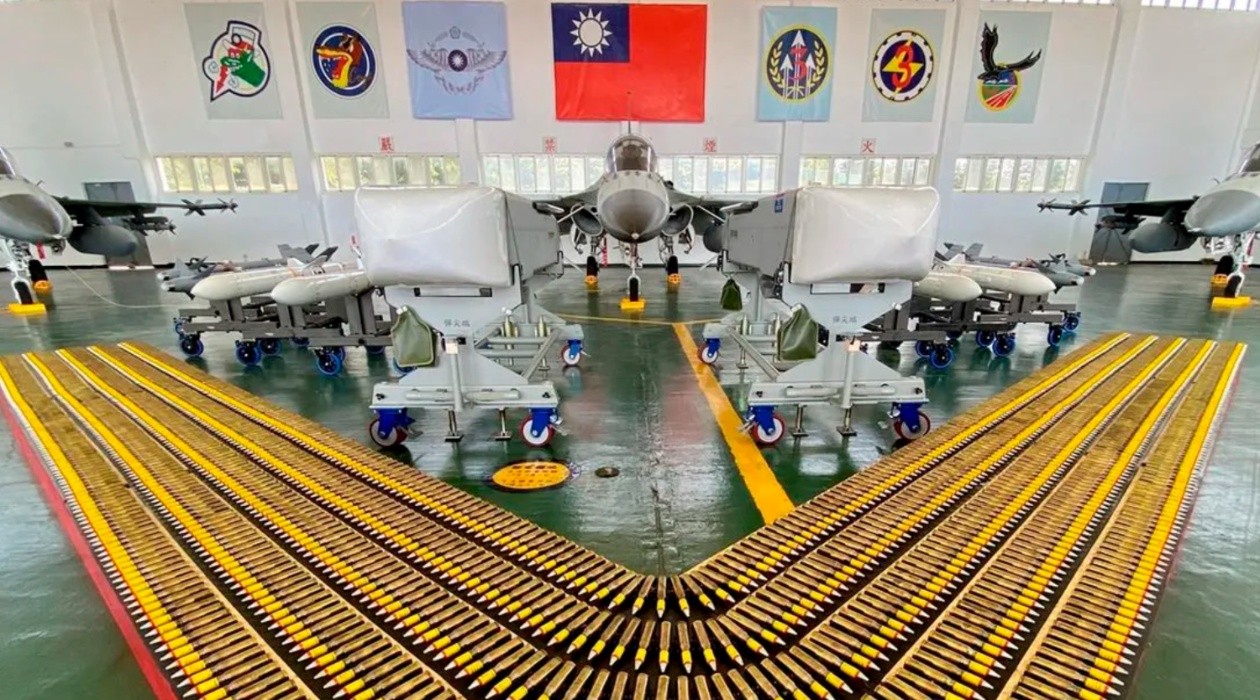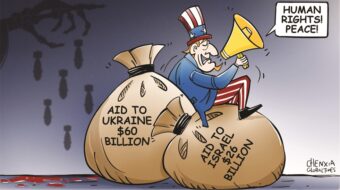
China’s Defense Ministry accused the United States Wednesday of turning Taiwan into a powder keg with its latest sales of military equipment to the breakaway province.
The U.S. State Department approved the sale of 30mm ammunition and related equipment, along with spare parts for Taiwan’s vehicles, small arms, combat weapon systems, and logistical support items worth a total of $440.2 million.
Defense Ministry spokesperson Col. Tan Kefei responded that “the U.S. ignores China’s core concerns, crudely interferes in China’s internal affairs, and deliberately escalates tensions across the Taiwan Strait.”
China claims Taiwan as its own territory and Tan said “stern representations” had been lodged with the U.S.
“This is tantamount to accelerating the transformation of Taiwan into a ‘powder keg’ and pushing the Taiwanese people into the abyss of disaster,” he said in a statement carried on the ministry’s website.
Using force to seek independence is wishful thinking and is doomed to failure, he said, adding that the People’s Liberation Army was always ready and would maintain peace and stability in the Taiwan Strait.
Mao Ning, a spokesperson for the Chinese Foreign Ministry, also addressed the arms deal at a press briefing. “The U.S. should abide by the ‘One China’ principle…. It should cease selling weapons to Taiwan, creating tensions and undermining peace and stability in the Taiwan Strait.”
The U.S. officially maintains a “One China” policy under which it supposedly does not recognize Taiwan’s formal independence and has no formal diplomatic relations with the island. Nonetheless, U.S. law requires a credible defense for Taiwan and for the U.S. to treat all threats to the island as matters of “grave concern.”
Going beyond this, the Biden administration has continued to build up its military strength in a provocative arc around China. According to the Pentagon’s own figures, the U.S. has at least 313 bases in East Asia and around 750 worldwide.
The number of U.S. bases may be even higher, as the Pentagon does not release the location of all of its facilities.

In contrast, China has one base in Djibouti and several small installations in the South China Sea, bringing the country’s total foreign military bases to around eight.
In its announcement of the Taiwan weapons sale, the State Department said it “serves U.S. national, economic, and security interests by supporting the recipient’s continuing efforts to modernize its armed forces and to maintain a credible defensive capability.”
The State Department said: “The proposed sale will help improve the security of the recipient and assist in maintaining political stability, military balance, and economic progress in the region.”
They added that the ammunition and associated equipment would maintain the effectiveness of Taiwan’s CM34 Armored Vehicles while “further enhancing interoperability with the United States.”
The need for “interoperability” essentially means that the Taiwan armed forces are to be kept in a state where they can be easily integrated into the U.S. military in the event of war against China.
Taiwan thus serves as an extension of U.S. armed power in the region, a point not lost on many observers in East Asia—or in Taiwan itself.
“An increasing number of Taiwan people have come to realize that the U.S. is turning Taiwan into…an ammunition depot, rather than providing protection,” Zhu Fenglian at the State Council Taiwan Affairs Office said.
Referring to the ruling party in Taipei, Zhu said, “The Democratic Progressive Party authorities in Taiwan are spending the hard-earned money of the people to please the U.S., which will only push the people of Taiwan into a dangerous and volatile situation.”
This article features reporting from Morning Star. It has been supplemented with additional details.
We hope you appreciated this article. At People’s World, we believe news and information should be free and accessible to all, but we need your help. Our journalism is free of corporate influence and paywalls because we are totally reader-supported. Only you, our readers and supporters, make this possible. If you enjoy reading People’s World and the stories we bring you, please support our work by donating or becoming a monthly sustainer today. Thank you!












Comments